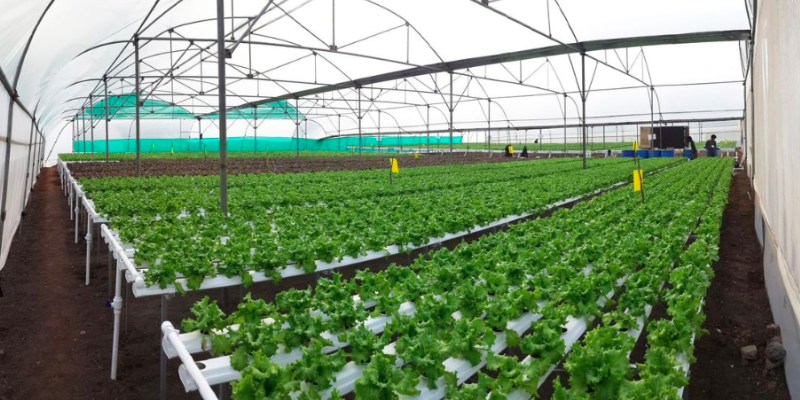Stanford Seed startup Future Farms is out to solve India’s food crisis with clean, soil-less farming
Chennai-based Future Farms was one of the first agri startups in India to utilise hydroponics and set up rooftop farms that produce clean food crops.
At a Glance
Startup: Future Farms
Founder: Sriram Gopal
Year it was founded: 2014
Where it is located: Chennai
The problem it solves: Pesticide-free, soil-less farming for “clean” food
Sector: Agritech
Funding raised: Bootstrapped
Sriram Gopal was running Synamen Thinklabs, an IT firm, in Chennai when he stumbled upon videos of soil-less farming and rooftop farms on YouTube. The year was 2014, and Sriram’s seven-year-old IT venture, which offered business consulting and go-to-market strategies to tech startups, was enjoying a good run with a turnover of about Rs 2 crore.
Sriram was keen to do more, and to experiment, even as his top team at Synamen Thinklabs was content sticking to their core business. It was then that the Caledonian Business School (UK) alumnus began scouting for newer ideas and opportunities, and discovered hydroponics.

Hydroponics is the practice of growing plants without soil, using mineral nutrient solutions in a water solvent. It not only helps reduce water consumption and increase yield, but also ensures pesticide-free farming, making it a cleaner, greener agri solution.
“I was fascinated. It looked more like engineering than agriculture,” Sriram tells YourStory. “Hydroponics had existed in Southeast Asia for nearly 15 years. But no Indian company was doing it. I wondered why,” he says.
Bringing precision farming to India
YouTube videos and reading matter on the web led Sriram to develop small DIY hydroponics kits. His father, who was the owner of a printing factory in Chennai, aided him in the activity. They would soon go on to acquire the distributorship of a foreign company that sold hydroponics kits in India.
“We listed on Trade India and other online directories. But sales were low because the kits were expensive,” Sriram recalls.
However, it helped him network with “like-minded people” that included engineers, biotechnologists, agronomists, and some with a simple interest in gardening. About 8-10 of them were willing to join Sriram in his hydroponics “adventure” and they formed a company in late 2014.
Each of them, “core team members” as they are referred to, now own shares in Future Farms, which has grown to be a 70-member startup in four years. It has executed over “32 commercial projects” for companies, including the Adani Group, Parry Agro, Dabur, Kalpataru Group, Aries Agro, and others, essentially pioneering hydroponics in Indian agriculture.
Future Farms now grows 16 crop varieties, classified under English Exotic, Asian Exotic and Indian Exotic, across 15 acres of land spread over 10 states. It recorded a $1 million turnover last year.

Sriram says,
“The focus is mostly on leafy vegetables and we have farms in every corner of the country from Delhi and Gujarat to Maharashtra and Tamil Nadu. We have grown significantly in the past two years.”
The Stanford Seed effect
Founder-CEO Sriram attributes much of Future Farms’ recent growth to the Stanford Seed Program, a year-long leadership programme designed for high-potential Indian business leaders and startup founders to scale their ventures. “Stanford Seed has been phenomenal. It helped us in being taken seriously by the VC community, which usually favours the IIT-IIM labels,” Sriram says.
He adds,
“Half the systems that we are running today were non-existent before Stanford Seed happened. They have given a format and a structure to our organisation, extended support and validation. They also helped us network with VCs in the Silicon Valley and put us on the Stanford Seed Angel Network.”
Future Farms has gone on to execute a pilot in Sri Lanka, and has a few more international projects lined up this year.
Davis Albohm, Associate Director, Global Operations, Stanford Seed, tells YourStory,
“The Seed Transformation Program was designed to provide critical skills and support to business leaders in India, with the goal of empowering talented entrepreneurs by growing their companies, developing new products and services and creating new jobs. The success of Sriram and Future Farms is a testament to the great promise and economic potential of India, and we’re thrilled to follow his continued growth and successes.”

The measurable impact
Future Farms claims to have brought down water consumption by a whopping 90 percent, cut down farming cost by half, increased yield (it says it manages four acres worth of produce in a single acre), accelerated the growth cycle (seed to plant takes about 35 days now), and improved the overall produce (120-160 tonnes to 250-270 tonnes annually).
Sriram says,
“This urban farming technique is 100 percent clean. It leaves no pesticide residue, has zero bio-toxicity or metal contamination. It involves lesser labour and input cost, but gives a greater yield. After all, why should people pay a premium for clean food? Isn’t it their right?”
The United Nations estimates that there are over 820 million “hungry” people in the world, and a huge chunk of them are in India. The affordability and accessibility of food is poor, but with hydroponics and other modern farming solutions, it is likely to improve.
Market opportunities
According to Transparency Market Research, the global hydroponics market will reach $12.1 billion by 2025, with Asia-Pacific being the growth driver. The study states,
“Growing awareness about the advantages of this form of cultivation over traditional farming has been propelling the global market. Hydroponics save water, land, use lesser fertilisers, and are a simple solution to problems of climate change.”
Hence, for Future Farms, the world is a stage. In the domestic market, especially, it is one of the few hydroponics startups to have executed commercial projects (BitMantis Innovations, Letcetra Agritech, Triton Foodworks, and Junga FreshnGreen being the others).
Bootstrapped till now, Future Farms is close to sealing a $1 million fund-raise from angels. It is looking to ramp up its agri-technology and expand its farms in India and abroad. “We are a group of people solving a global food crisis,” Sriram says.











